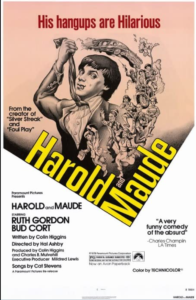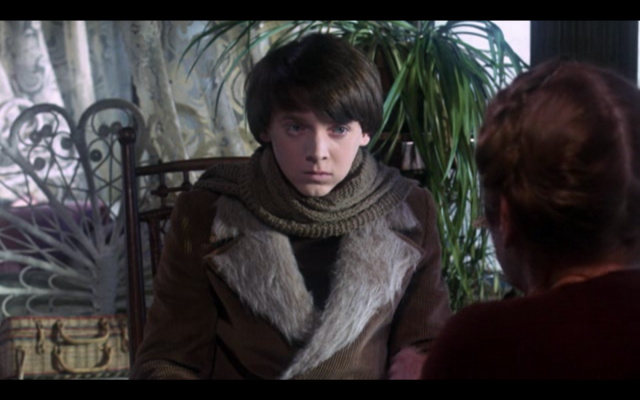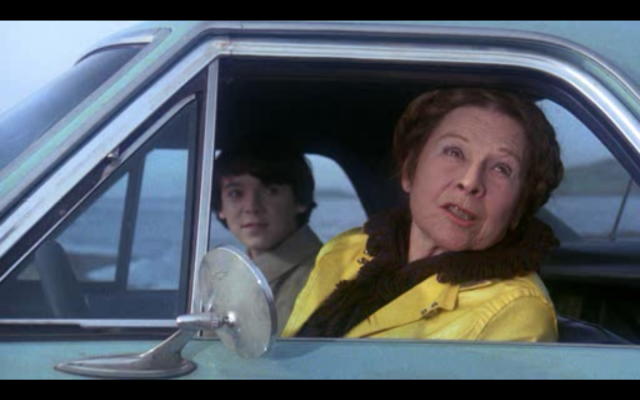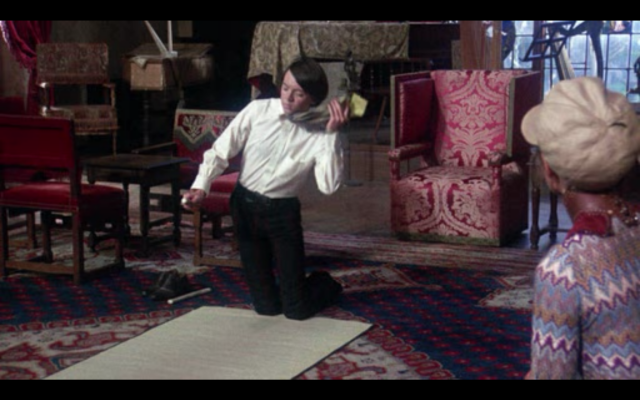Harold and Maude (1971)
“Tell me about yourself. What do you do when you aren’t visiting funerals?”
|
Synopsis: |
|
Genres, Themes, Actors, and Directors:
Response to Peary’s Review: Watching it again years later, I’m much more aware of the script’s heavy-handed faults, yet there’s still much here to take delight in. Cort and Gordon are perfectly cast as cinema’s most enduring odd couple, epitomizing a “May-December romance” taken to chronological extremes (Gordon’s 80-year-old character could actually be 20-year-old Cort’s great-grandmother — just chew on that one for a while). The suicide attempts remain clever and often laugh-out-loud funny; my particular favorite has Harold committing elaborate hara-kiri in front of his third blind date, an aspiring actress named Sunshine (Ellen Geer) who — rather than reacting with horror like her predecessors — shrieks with delight and proceeds to join Harold in his dramatics (though I wish the scene went on for a bit longer — I’d like to know what happened next!). And it’s true, as Peary notes, that there are “touching glimpses” throughout the film which reveal the shadow-side of Maude’s exuberance for life — though along with many others, I find the film’s surprising ending a bit “infuriating”, and am not quite sure I agree with Peary that it “makes sense”. P.S. In both his GFTFF and Cult Movies reviews of the film, Peary makes an interesting comparison between Harold and Maude and Val Lewton’s Curse of the Cat People, noting the parallels between Ruth Gordon and Simone Simon, who becomes “an unhappy little girl’s imaginary playmate, her one friend, until the girl can turn elsewhere”. Redeeming Qualities and Moments:
Must See? Categories
(Listed in 1001 Movies You Must See Before You Die) Links: |





One thought on “Harold and Maude (1971)”
A must – for the fact that its cult status cannot be denied. In many ways, I think the status is even deserved – and younger ffs can certainly benefit from the film’s overall message (embrace yourself on a more real level and, in doing so, embrace life).
That said, I’m not a huge fan.
The mood of the film could not be set-up more perfectly: Harold’s first ‘suicide’ during the credits is shot marvelously, with appropriate solemnity and tension. The scene reaches the perfect pay-off with his mother’s off-the-cuff response to his attempt. (As mom, Pickles actually manages to run off with the movie, if you ask me.)
All of the ‘suicides’, in fact, are very funny – mainly because we know it’s the type of exaggeration that could never be duplicated in real life.
Conversely, Maude’s behavior is all very real and, as the film goes on, she exhibits behavior which, although sometimes charming for its eccentricity, is also annoying and something of a menace to society (i.e., her habit of stealing cars and driving recklessly).
To make its point about loving yourself for who you are – esp. if you are ‘different’ – the story surrounds H&M with two types who are clearly to be avoided: authority figures and those who play according to society’s rules. Both types here are seen as idiots. (And this, at times, is also quite funny – i.e., when Harold’s mom ‘helps’ Harold fill out a questionnaire by filling in the answers the way *she* would.) Now, of course, there are idiots like this in life – but they are used in the film to press the point that being different is more important than anything else; more important than joining the human race.
Maude, in fact, does not herself seem very fond of people. And, as we find out, for all her talk about how wonderful life (which is all she believes in) is, she…well, in light of what she says, her ultimate decision makes no sense – even if it apparently does to Harold.
Taking a cue from Mike Nichols’ use of Simon and Garfunkel music in ‘The Graduate’, Ashby marinated ‘H&M’ in Cat Stevens songs. Wonderful songs they are and they support the film well. Still, on repeat viewings, I’ve felt less and less uplifted. Ironically, I’m left feeling cold.